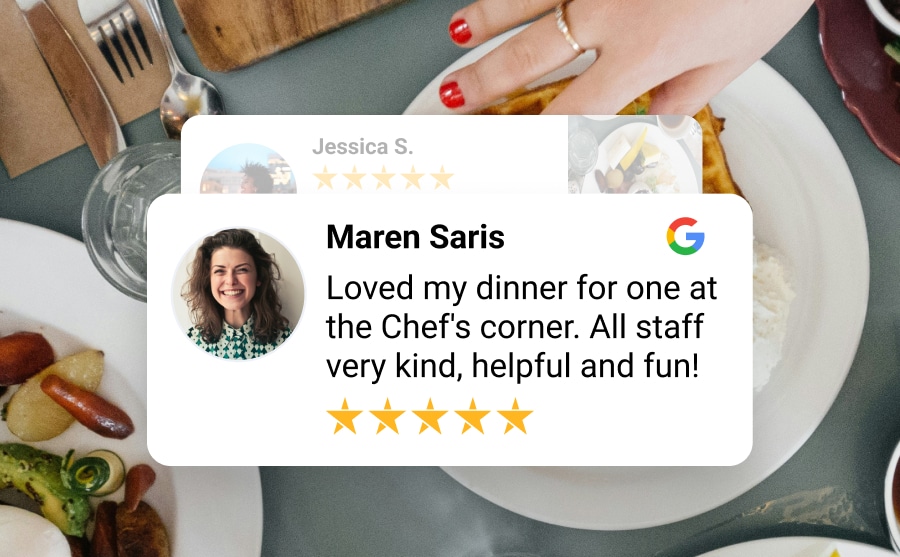What Consumers Really Think About Renewable Energy Adoption

Summary
As renewable energy technologies surge forward, understanding consumer sentiment has become just as crucial as technological innovation. Modern energy adoption is no longer a top-down process—consumers actively debate, question, and influence the trajectory of solar, wind, and EV infrastructure through online platforms and social discourse. By combining traditional market research with real-time social listening, energy providers can uncover both the emotional drivers and practical concerns shaping adoption, from cost and reliability to environmental impact and community trust. Insights like these allow organizations to craft targeted strategies, foster transparency, and ultimately accelerate the transition to a more sustainable energy future—demonstrating that successful adoption depends as much on listening as it does on leading.
Introduction
The energy industry is at a turning point. As renewable energy technologies rapidly evolve, public perception and consumer sentiment play a critical role in shaping adoption rates. From rooftop solar panels to wind farms and EV charging networks, consumers are no longer passive recipients of energy — they’re informed stakeholders who want to understand, influence, and participate in the energy transition.
To successfully drive adoption, energy providers need to know what people are thinking, feeling, and saying about renewable energy. That’s where market research and social listening come together. By tapping into these insights, companies can align their strategies with real consumer expectations.
From Traditional Research to Always-On Listening
Historically, energy companies relied on surveys, public hearings, and market reports to gauge public opinion. While these methods are useful, they often miss the immediacy and nuance of real-time sentiment.
Today, over 80% of consumers engage online to share their views — debating topics like energy costs, environmental impact, and technology adoption. Platforms like Twitter, Reddit, Facebook, and community forums have become modern town halls where conversations shape perceptions.
Always-on social listening allows companies to capture these insights as they happen, making their communication strategies more responsive and effective.
Why Social Listening Matters Across Industries
Social listening provides a window into authentic consumer sentiment about renewable energy. Here’s how it impacts different segments:
- Solar Energy: Track consumer concerns about installation costs, reliability, and incentives.
- Wind Power: Monitor community discussions about land use, environmental impact, and local benefits.
- EV Charging Infrastructure: Detect frustrations about availability, pricing, and ease of use.
- Utility-Scale Renewables: Capture sentiment around policy, grid integration, and public trust.
Takeaway: Social listening helps energy companies identify opportunities to build trust and remove barriers to adoption.
The Role of Market Research + Social Data
By combining market research with social listening, energy providers gain a 360° view of consumer attitudes. Surveys reveal structured insights into willingness to adopt renewable energy, while social data captures emotional drivers and objections.
With RILA’s insights, companies can:
- Detect the top motivators and barriers to renewable energy adoption.
- Understand consumer perceptions of cost, technology, and environmental impact.
- Benchmark sentiment against traditional energy sources and competitors.
- Identify geographic regions with strong support or resistance.
- Craft communication strategies that address real concerns, not assumptions.
The result is smarter messaging, better engagement, and stronger adoption outcomes.
RILA in Action: Turning Signals into Strategy
Imagine this: Online discussions spike after a major city announces incentives for residential solar installations. Some consumers express excitement over potential savings, while others raise concerns about upfront costs and maintenance.
Using RILA CORE, our proprietary insight framework, we help energy companies:
1. Capture and analyze these conversations across digital platforms.
2. Identify key themes driving both enthusiasm and skepticism.
3. Synthesize findings into targeted education and incentive campaigns.
4. Activate community outreach strategies that build trust and address concerns directly.
The result? Higher adoption rates, reduced resistance, and a more informed public.
What This Means for Organizations
Renewable energy adoption isn’t just about technology — it’s about people. Understanding what consumers really think enables energy companies to build programs that resonate and drive action.
- Proactive communication: Address misconceptions and concerns before they spread.
- Consumer alignment: Build strategies based on real sentiment, not assumptions.
- Market leadership: Gain an edge by identifying adoption trends early.
- Trust and transparency: Strengthen relationships with communities and stakeholders.
For energy leaders, listening isn’t optional — it’s essential.
About RILA Global Consulting
At RILA Global Consulting, we combine cutting-edge social listening, consumer research, and AI-driven analytics to decode what consumers are saying — and not saying — about renewable energy adoption. With deep expertise in the energy and utilities sector, we help organizations translate public sentiment into strategy.
We’ve supported renewable energy companies, utilities, and government agencies in understanding community perspectives, building trust, and driving adoption. Whether you need to detect trends, benchmark perceptions, or design impactful education campaigns, RILA is your partner for turning insights into action.
👉 Ready to understand what your consumers really think about renewable energy?
Contact us RILA Global Consulting to start driving results today.
Read More

Top U.S. Consumer Concerns — Last 30 Days (RILA Global Consulting Analysis)
Over the past month, American consumers have been caught between economic pressure and cautious hope. According to RILA’s analysis of 25 million online conversations, tariffs and inflation dominate public discourse — shaping a sense of financial vulnerability that spans demographics and languages. English-speaking Americans decry tariffs as a hidden tax, while Spanish-speaking communities focus on agricultural fallout and global trade risks. Inflation’s reach now extends beyond groceries to healthcare, deepening distrust in political leadership. Meanwhile, AI-driven automation fuels job insecurity, especially among younger generations who see innovation as both opportunity and threat. Yet, amid the strain, moments of optimism — from EV purchases to financial literacy — suggest that while Americans feel squeezed, they’re still seeking control and clarity in a shifting economic landscape.
October 22, 2025
READ MORE

Why Social Listening is Critical for Nuclear Energy Discussions
Nuclear energy remains one of the most emotionally charged and technically complex sectors in the global energy debate, where public perception often outweighs scientific facts. This article explores how social listening has become essential for industry leaders, policymakers, and energy organizations to understand real-time public sentiment, track misinformation, and engage communities proactively. Unlike traditional research, which captures static snapshots of opinion, social listening uncovers nuanced, rapidly evolving conversations across social media and forums, allowing stakeholders to detect concerns early, address fears around safety and waste, and craft targeted, empathetic communication strategies. By integrating these insights with market research, nuclear energy organizations can foster trust, shape narratives responsibly, and position themselves strategically in the transition to net-zero emissions.
October 22, 2025
READ MORE

Why Hospitality Brands Can’t Ignore TikTok Travel Trends
TikTok has transformed the way travelers discover and choose destinations, turning viral videos into powerful drivers of bookings and brand visibility. For hospitality brands, from luxury resorts to boutique hotels, ignoring TikTok trends is no longer an option — these platforms provide real-time signals of traveler interests, desires, and frustrations. By combining social listening with traditional market research, brands can anticipate emerging trends, tailor content to viral hashtags, and convert engagement into bookings. RILA specializes in turning TikTok insights into actionable strategies, helping hotels and travel brands bridge the gap between online virality and real-world revenue while staying ahead of the competition in a rapidly evolving digital landscape.
October 22, 2025
READ MORE

What Social Listening Reveals About Inflation’s Impact on Dining Choices
Inflation is reshaping not just what consumers eat, but how they decide where and how much to spend—conversations that are happening in real time on social media. Traditional research methods can lag behind these rapid behavior shifts, but social listening combined with AI-driven analytics provides QSR and food brands with an immediate window into consumer priorities, price sensitivity, and value perceptions. From spotting early complaints about portion sizes to identifying the most effective promotions, brands that act on these digital signals can proactively adjust pricing, loyalty programs, and messaging to maintain loyalty and competitive advantage. By treating inflation as a strategic moment rather than a challenge, companies can turn economic pressure into actionable intelligence, protecting both margins and customer relationships.
October 22, 2025
READ MORE

What Reddit and TripAdvisor Teach Us About Hospitality Pain Points
In today’s digital age, guest experiences extend far beyond hotel walls, unfolding in real time on platforms like Reddit and TripAdvisor. These forums offer unfiltered, authentic insights into travelers’ frustrations, praises, and unmet expectations, revealing pain points that traditional surveys often miss. By combining always-on social listening with structured market research, hospitality brands can detect service gaps as they emerge, understand the emotional drivers behind complaints, and implement targeted solutions that improve satisfaction and loyalty. RILA specializes in transforming these digital conversations into actionable strategies, helping hotels, resorts, and boutique properties proactively enhance operations, protect brand reputation, and turn guest feedback into a competitive advantage.
October 22, 2025
READ MORE

What Consumers Really Want From Healthy Fast Food Options
As consumer expectations evolve, fast food is no longer just about speed and price—health, transparency, and personalization now dominate decision-making. This article explores how traditional research methods are being outpaced by real-time digital conversations on social media, food apps, and review platforms, revealing authentic insights into dietary trends, affordability, flavor preferences, and sustainability demands. By combining AI-driven social listening with structured market research, fast food brands can detect emerging trends, tailor menus, and anticipate shifts before competitors, turning data into actionable strategies that drive loyalty, innovation, and growth.
October 22, 2025
READ MORE

Turning Sustainability Commitments Into Consumer Confidence
In today’s energy landscape, bold sustainability promises are no longer enough—consumers demand proof, transparency, and tangible results. Energy companies must move beyond announcements and actively demonstrate progress through measurable actions, verified data, and authentic community engagement. By leveraging social listening and clear storytelling, brands can identify concerns, address skepticism, and transform it into trust and advocacy. Embedding sustainability into the core of operations and communications turns commitments into credibility, driving consumer confidence, brand loyalty, and long-term competitive advantage in an era where trust is the ultimate currency.
October 22, 2025
READ MORE

Turning Negative Reviews Into Competitive Advantage in Travel & Hospitality
In an age where a single online review can influence thousands of potential guests, the hospitality industry faces both its greatest challenge and most valuable opportunity: social listening. This article explores how RILA helps hotels and travel brands transform negative reviews from reputation risks into strategic assets. By combining social listening, market research, and AI analytics, businesses can decode real-time guest sentiment, uncover hidden service gaps, and respond before issues escalate. The result isn’t just damage control — it’s a proactive, data-driven approach that turns criticism into competitive intelligence, driving loyalty, trust, and long-term growth in an increasingly transparent marketplace.
October 22, 2025
READ MORE

Turning Customer Complaints Into Competitive Advantage
In today’s hyper-connected world, customer complaints have evolved from being reputational risks to becoming powerful sources of strategic intelligence. Nowhere is this transformation more evident than in the QSR and food & beverage industries, where real-time social feedback can make or break a brand overnight. This article explores how RILA helps organizations harness complaint data—using AI, social listening, and integrated research—to detect early warning signs, uncover innovation opportunities, and turn negative sentiment into competitive advantage. By listening deeply and responding intelligently, brands can transform frustration into loyalty, operational pain points into performance gains, and dissatisfied customers into their strongest advocates.
October 22, 2025
READ MORE